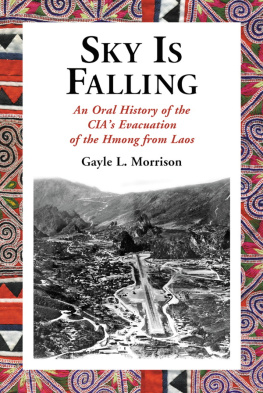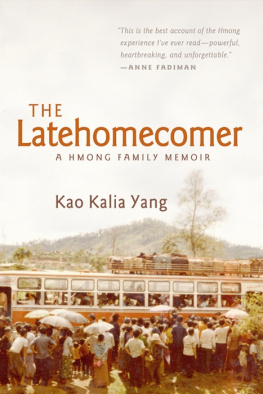Mai Na M. Lee - Dreams of the Hmong Kingdom: The Quest for Legitimation in French Indochina, 1850–1960
Here you can read online Mai Na M. Lee - Dreams of the Hmong Kingdom: The Quest for Legitimation in French Indochina, 1850–1960 full text of the book (entire story) in english for free. Download pdf and epub, get meaning, cover and reviews about this ebook. year: 2015, publisher: University of Wisconsin Press, genre: Politics. Description of the work, (preface) as well as reviews are available. Best literature library LitArk.com created for fans of good reading and offers a wide selection of genres:
Romance novel
Science fiction
Adventure
Detective
Science
History
Home and family
Prose
Art
Politics
Computer
Non-fiction
Religion
Business
Children
Humor
Choose a favorite category and find really read worthwhile books. Enjoy immersion in the world of imagination, feel the emotions of the characters or learn something new for yourself, make an fascinating discovery.
- Book:Dreams of the Hmong Kingdom: The Quest for Legitimation in French Indochina, 1850–1960
- Author:
- Publisher:University of Wisconsin Press
- Genre:
- Year:2015
- Rating:3 / 5
- Favourites:Add to favourites
- Your mark:
Dreams of the Hmong Kingdom: The Quest for Legitimation in French Indochina, 1850–1960: summary, description and annotation
We offer to read an annotation, description, summary or preface (depends on what the author of the book "Dreams of the Hmong Kingdom: The Quest for Legitimation in French Indochina, 1850–1960" wrote himself). If you haven't found the necessary information about the book — write in the comments, we will try to find it.
Countering notions that Hmong history begins and ends with the Secret War in Laos of the 1960s and 1970s, Dreams of the Hmong Kingdom reveals how the Hmong experience of modernity is grounded in their sense of their own ancient past, when this now-stateless people had their own king and kingdom, and illuminates their political choices over the course of a century in a highly contested region of Asia.
In China, Vietnam, and Laos, the Hmong continuously negotiated with these states and with the French to maintain political autonomy in a world of shifting boundaries, emerging nation-states, and contentious nationalist movements and ideologies. Often divided by clan rivalries, the Hmong placed their hope in finding a leader who could unify them and recover their sovereignty. In a compelling analysis of Hmong society and leadership throughout the French colonial period, Mai Na M. Lee identifies two kinds of leaderspolitical brokers who allied strategically with Southeast Asian governments and with the French, and messianic resistance leaders who claimed the Mandate of Heaven. The continuous rise and fall of such leaders led to cycles of collaboration and rebellion. After World War II, the powerful Hmong Ly clan and their allies sided with the French and the new monarchy in Laos, but the rival Hmong Lo clan and their supporters allied with Communist coalitions.
Lee argues that the leadership struggles between Hmong clans destabilized French rule and hastened its demise. Martialing an impressive array of oral interviews conducted in the United States, France, and Southeast Asia, augmented with French archival documents, she demonstrates how, at the margins of empire, minorities such as the Hmong sway the direction of history.
Best books for public & secondary school libraries from university presses, American Library Association
Mai Na M. Lee: author's other books
Who wrote Dreams of the Hmong Kingdom: The Quest for Legitimation in French Indochina, 1850–1960? Find out the surname, the name of the author of the book and a list of all author's works by series.

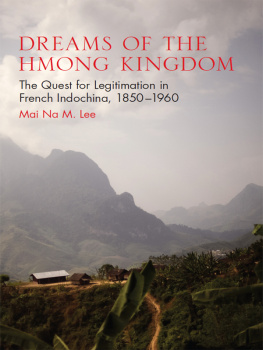
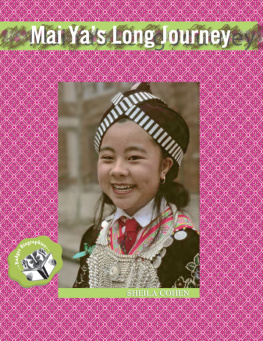


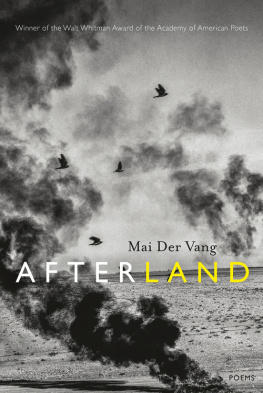
![Yang - The latehomecomer: [a Hmong family memoir]](/uploads/posts/book/165016/thumbs/yang-the-latehomecomer-a-hmong-family-memoir.jpg)

